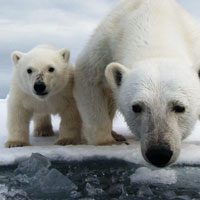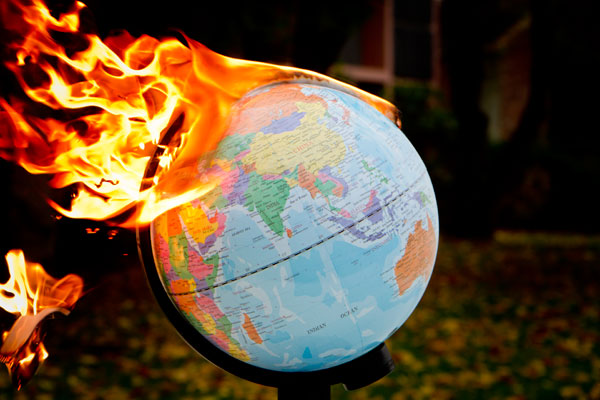Yes you. I know you’re busy, with assignments and exams and whatnot. And then of course there are part time jobs, and sports teams, and girlfriends, best mates, red cards; it just goes on and on doesn’t it? But just one more thing, it won’t take long. Could you just quickly deal with this whole climate change thing? There’s a good Scarfie.
A bit of an exaggeration, but that’s how it can feel sometimes. On top of the daily grind we’re expected to be good global citizens, taking the time to not only worry about our own issues, but to help solve issues and threats to the planet, and to humanity. The reality of living in the age of globalisation is that the decisions we make locally have global implications. How we treat our local environment, and how we buy goods and services impacts both the planet, and other people, in far off places.
So how can an individual student, with little to no disposable income, tucked away in little ol’ New Zealand, make a difference to the problems that threaten the entire world? The answer is one step at a time. Critic is going to explain the basics of climate change, and how you too can get on board the environmentalism bandwagon.
What’s up Climate Change?
Climate change, otherwise known as global warming, can be explained quite simply if you don’t go too far into the details. Imagine that the entire world is cloaked in a blanket made up of a whole lot of different gases. When sunlight (and therefore heat) tries to bounce off the earth, and back into space, it is unable to escape completely. This is a good thing, because otherwise the Earth would be a barren frozen wasteland. However, we have built an economy that is hugely reliant on burning fossil fuels (so called because oil and coal are literally decomposed plants and some animals from millions of years ago). When we burn fossil fuels, gases escape and add to the thickness of the blanket. With this heavier blanket covering the earth, more heat is retained. We’ve burnt through so much carbon since the industrial revolution that the world is now heating at a much faster rate than any naturally occurring event could ever cause.It is the pace of this change that is the problem. The climate, which is the long-term weather patterns of the earth, is always changing, but usually over very long time frames. We can expect that if humans are still alive in 10,000 years’ time, they will have to live through another ice age. But because we’ve created a situation where the world is getting hotter and hotter, faster and faster, the earth and all of its inhabitants, human and otherwise, are unable to keep up.
The plan to combat climate change is twofold: First, mitigation; second, adaptation. Mitigation aims to reduce our carbon output as quickly as we can, so that we limit the long-term damage as much as possible. Adaptation plans accept that a lot of the damage has already been done, and that the developing world, which has benefited so greatly from using carbon-based fuels, must help the developing world which is going to suffer the greatest impacts of climate change. Helping to deal with droughts, building sea walls against rising water levels, and helping developing countries to grow their own economies without creating an even larger problem are all part of the adaptation plans.
But that is all at a global level. The complicated, and often politically hamstrung negotiations over dealing with climate change, will never be successful if individuals do not get involved to make change. There are hundreds of things that we can all do everyday to reduce the amount of carbon that we pump out. We’ve made an arbitrarily numbered list of things that you can do to reduce the amount of carbon you use, cut down on your environmental impact, and generally be a GC toward the planet (plus some extra random stuff that would also be great if you could do. K? Thx).
Top 10 Ways to be a GC (Good Citizen)
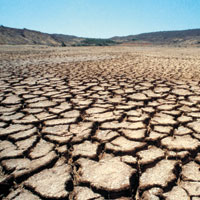
01
Educate yourself about what climate change is, what it’s doing to the planet, how it’s going to affect the poorest members of humanity, and what you can do about it. Understand the difference between free trade and fair trade; buy fair trade products where you can, and demand that the government acts fairly in its trade negotiations.
02
Buy locally: If you can buy a product (especially a food item) that is locally produced, not only can you be more sure about where it came from and how it was grown, but you drastically reduce the carbon that is used to transport that good around. Even better, buy from the local Farmers’ Market and you will know that you are buying truly local goods.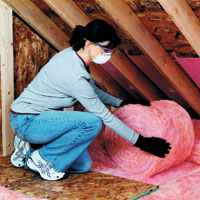
03
Demand insulation in your flat: Turning on the heater in an uninsulated Dunedin flat is the ultimate exercise in futility, you’re hardly going to get any warmer, and you are pumping that heat straight outside. The government is basically paying homeowners to insulate their houses at the moment, and landlords are able to take advantage of the same scheme. Turn the screws on them to insulate your flat while you’re away over summer, or demand that insulation be installed before you move in next semester, and not only will you be a whole lot more comfortable through winter, but you’ll be doing your bit to reduce NZ’s power production through coal power (yep, we’re still using the Huntly coal power plant to top up the NZ grid).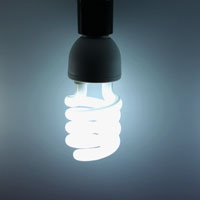
04
Change your light bulbs: This is just such a basic idea, it’s crazy that everyone isn’t already doing it. Over their lifetime energy saving bulbs are far cheaper than incandescent bulbs. Make it flat policy to buy only energy saving bulbs.
05
Fair trade not free trade: It won’t solve climate change, but it will make you a GC. Governments and corporations love them some free trade. It sounds good too. But the reality is that free trade is about reducing tariffs and quotas for major corporations that are importing and exporting across borders. It’s about greater profits, and yes, sure, that has positive impacts for economies. But the power imbalance between the two parties often sees the agreement for free trade disadvantage the smaller, developing country, in favour of the larger more developed country.For instance, the UNDP has revealed that the wealthiest fifth of the world captures 82% of profits from expanding exports and 68% of foreign investment, whereas the bottom fifth captures around 1% of each. Factor in inflation and population growth, and free trade is leaving poorer countries worse off.
What we really want is fair trade. A fair price, for a fair product, paid to a local producer. When you can’t buy the product that you want from a local producer - coffee for example - make sure that when you do buy it that you are supporting ethical overseas producers, who are protecting their own local environments, and treating their workers fairly and ethically.

06
Eat less red meat: The mass production of red meat is one of the major producers of methane, itself one of the major contributors to climate change. We eat more red meat than ever before. We’re not saying that you have to go all vego, but cutting red meat down to once a week would make a massive difference.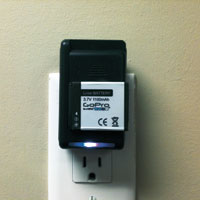
07
Turn shit off at the wall: “Vampire energy” is a massive drain on the national grid. Turning electronics off at the wall at the end of the day creates huge savings over a year.
08
Share a shower, save power: Long hot showers might be a nice way to warm up in a cold flat, but hot water requires a lot of electricity. Have shorter, warm showers, rather than long hot ones, and if you can, share a shower. You’ll get those hard to reach spots with ease.
09
Drink tap water: It might not solve climate change, but drinking bottled water is just stupid. The water out of the tap is clean and perfectly healthy (even if Dunedin’s doesn’t taste great). Most plastic bottles are manufactured from crude oil products, a process which is shit for the environment. Not being biodegradable, they will end up spending thousands of years in landfills.